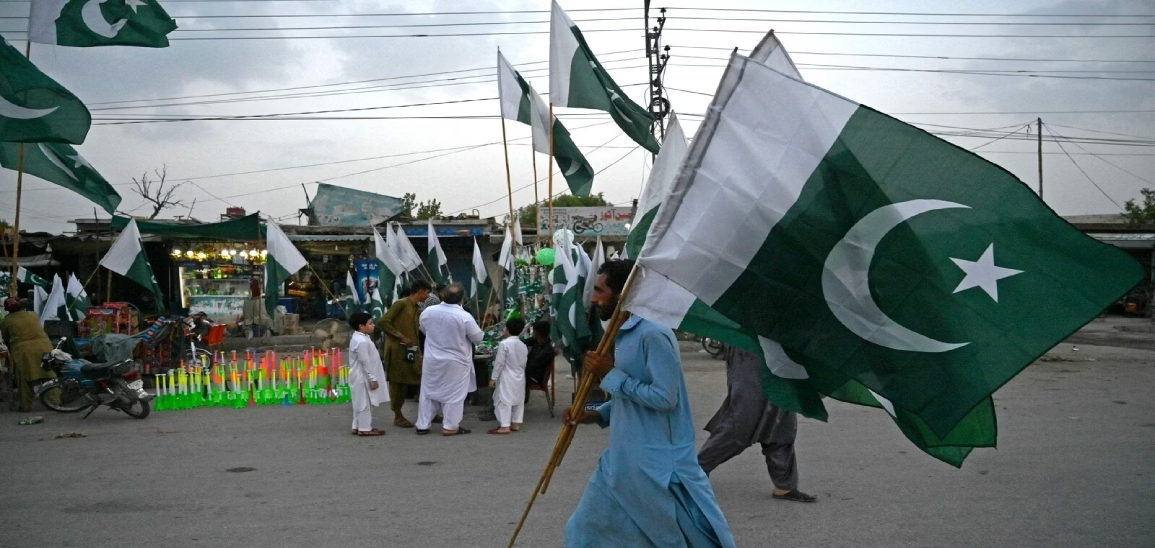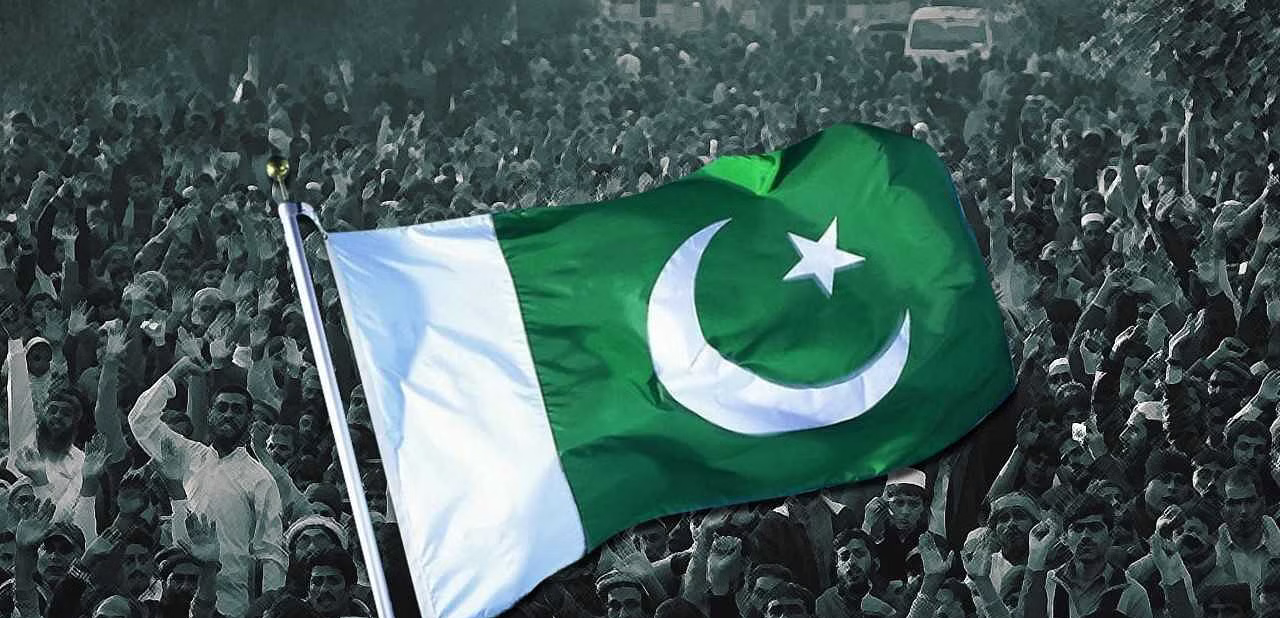Elections Announced, Finally
September 30, 2023 | Expert Insights

Many countries claim to be democracies, and the hallmark of all true ones is holding free, fair elections at prescribed intervals per their Constitution's tenets.
The lackadaisical way the Election Commission of Pakistan (ECP) has dealt with the issue of elections and its unsightly public debates with the office of the President, (constitutionally empowered to ensure fair and free elections and give the dates) has done much damage to the state's institutions.
Background
Political instability is a phenomenon that has been around for a while in Pakistan. The country was founded with high hopes in 1947, but soon after the demise of Muhammad Ali Jinnah, his successors could not match up to his stature. The Muslim League, unlike the Indian Congress, could not create a grassroots network in the newly-born country. Without the steady hand of Mr Jinnah at the helm, it floundered. A revolving door political leadership allowed the military to creep in and assume power through coups or by what Pakistan calls 'political engineering'. Pakistan has more or less taken the shape of a praetorian state, and even the current caretaker government of Mr Anwar ul Haq Kakar is a military implant.
After much speculation, the Election Commission of Pakistan (ECP) has announced that general elections would be held in the last week of January 2024. Surprisingly, even now, no specific dates have been mentioned, and the period being spoken of clearly exceeds the constitutionally mandated cut-off period of 90 days. But then, when was the Constitution in a military-dominated Pakistan considered more than a "piece of paper!"
However, amidst political parties, there is a sense of relief that elections will be held in the foreseeable future, even if the dates remain elusive. The greatest fear is that an ‘establishment-imposed’ caretaker government might continue to steer the country for as long as the military deemed appropriate, pushing forward the elections to some hazy future date, with the connivance of a subservient ECP.
The ECP has justified its inability to come up with specific dates and the violation of the 90-day deadline due to the ‘necessity’ of conducting a fresh delimitation. As the influential Dawn newspaper pondered in an editorial of its issue of September 29, “it is expected of the ECP that it completes the exercise in a manner that minimises the possibility of its delimitation decisions becoming a reason for further delay”.

Analysis
The timing of this announcement of upcoming elections is not random. Imran Khan is under arrest. His political future is technically finished. The Pakistan Tehreek-e-Insaaf, which he leads, has been effectively culled of all its ‘electables.’ The 'Establishment' feels that it is entirely in control of the situation and can effectively calibrate the outcome of the elections.
Having almost wiped out the PTI as a credible political entity, the guns are being turned on the other heavyweights to curb their tendency to take potshots at the establishment as an electoral campaigning ploy. Since Imran Khan's increasingly defiant stance against the establishment earned him the support of the middle class and the youth, other parties want to borrow a leaf from his playbook. In turn, they are facing the same pressures from the NAB and law enforcement agencies now as their erstwhile enemy, the PTI, and they were lustily cheering from the sidelines. However, the PTI is not officially banned. This shows that the Army has kept all its options open.
It was generally being bandied around that Mr Nawaz Sharif would be the next anointed leader of the country with the due blessings of the establishment. After weighing all pros and cons, the Pakistan Muslim League (N) announced October 21 as the much-awaited day when the 73-year-old, three-time prime minister (and a convicted absconder from justice) would land on Pakistani soil to lead his party back to power.
Despite the claims of Imran Khan's supporters, mostly young urbanites, it is unlikely that the "Captain" would be allowed out of his gaol to resume batting in time to score a victory for his embattled and drained-out team. But then, politics in Pakistan is a strange beast, and out-of-the-blue deals are not unknown. When Nawaz Sharif fled from the country in 2019 to seek medical care after serving less than 12 months of a seven-year prison sentence for corruption, everybody had written him off as a political force. Imran Khan, then the establishment's darling, wanted to make him sign an indemnity bond of $ 44 million before letting him go so that his return could be assured. However, reportedly, the court allowed him to travel abroad without signing the bond and remained an absconder for the next four years. Now, it is Imran Khan who is behind bars! How quickly political fortunes change in Pakistan.
For some time, speculations were doing the rounds that the establishment preferred the far more malleable Shahbaz Sharif over his elder brother to take on the reins once the elections had been done and dusted and the PML (N) was 'placed' in power. However, this may split the party right through the middle as the support for Nawaz Sharif is still strong within the party cadre and in the feudal heartland of Punjab. Nawaz Sharif has, over the decades, invested well in political capital and cannot be taken lightly. His recent public statements, blaming Gen Bajwa and his henchman, the former ISI boss, are evident of his combative mood.
As regards the Pakistan People’s Party (PPP), they seem to be trailing behind. In an August 22 article, the Pakistani newspaper “The Nation” echoed popular sentiments when it wrote, “Pakistan People’s Party has a mountain to climb if it is dreaming of appearing on the victory stand the electoral battle this time around." Since than, the situation has only gotten worse as the party has been wracked with conflicting statements by Mr Zardari and his son Bilawal Bhutto, who is being projected as the Prime Minister candidate in case the PPP can gain a majority.
None of the political parties in Pakistan have their hands clean. Each had compromised with the armed forces in one way or another at specific points in their history. So, no political party can claim a moral high ground. Each has betrayed the popular will time and again. The Pakistani people have suffered one betrayal after another. They have entirely lost faith in the political system as a whole.
All these political machinations have fortunately failed to diminish the democratic aspirations of the public, as is evident from a robust and prolific social media scene operated by media influencers living overseas, as well as in Pakistan. While mass protests and 'container meetings' are no longer taking place, there is palpable anger on the streets, and the crippling cost of petrol, electricity and food items has ensured that the anger has been steadily rising. A frustrated mass now considers free and fair elections the panacea for all their ailments!
Assessment
- Genuine democracy has never taken root in Pakistan. It will not do so now as there are no encouraging signs of any political miracle taking place. By constantly sniping at each other, the political parties have surrendered so much space to the military that they have been rendered almost inconsequential in the nation's governance. This is something that the country has to ponder over, and irrespective of which party comes to power, the rules of the game in the political arena must be changed if democracy can thrive in Pakistan.
- The system in Pakistan can be called a military-managed democracy. The military will continue to have the power but will not take any blame for its failures and will pass the buck on to the elected puppet government of whichever party or leader it chooses. This does not bode well for strengthening democracy in the country.
- Pakistan is passing through perhaps the most trying times of its history. The outcome of the elections provides an opportunity to break from the past and overhaul a system that has turned rotten before it is too late for this nation of 28 million armed with nuclear weapons.








Comments